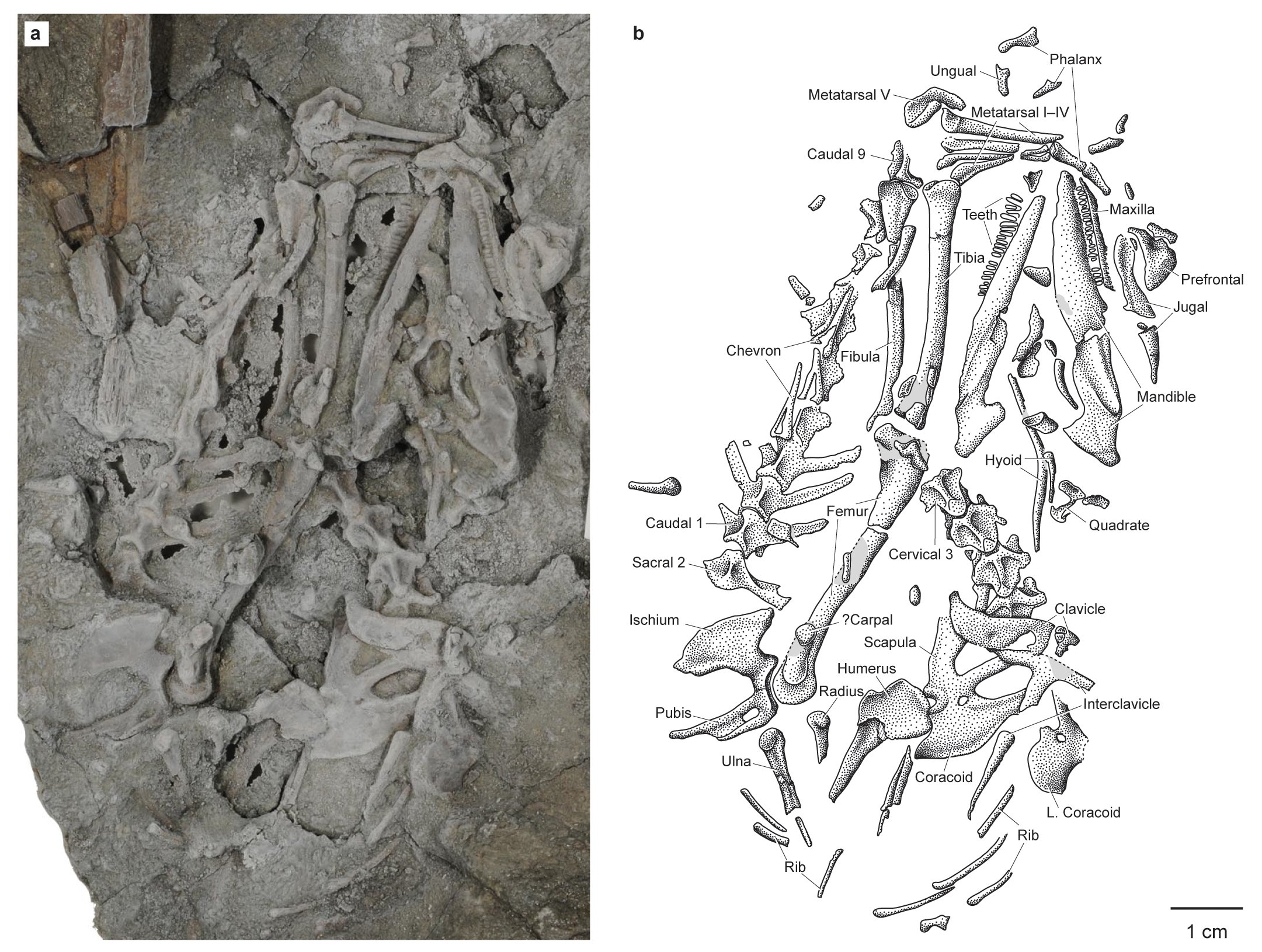Unexpected Discovery: Fossils Of Lizard That Lived 75 Million Years Ago At Egg Mountain, Montana, North America
– Paleontologists have discovered fossils of an ancient lizard that lived at Egg Mountain, Montana, North America about 75 million years ago.
To find a new species of lizard from the late dinosaur era, whose closest relatives roamed in faraway Asia, does not happen often.

It is incredibly rare to find one complete fossil skeleton from a relatively small creature like this lizard , but researchers have two specimens, both from the same site at Egg Mountain in Montana.
This fossil is the oldest, most complete iguanian in the Americas and illuminates the lives of lizards in the Age of Dinosaurs.
Based on analyses of the nearly complete fossil skeletons, Magnuviator ovimonsensis was an ancient offshoot of iguanian lizards and they’re actually the oldest, most complete iguanian fossils from the Americas.
Today, iguanians include chameleons of the Old World, iguanas and anoles in the American tropics and even the infamous water-walking basilisk or “Jesus Christ” lizards.
But based on its anatomy, Magnuviator was at best a distant relative of these modern lizard families, most of which did not arise until after the non-avian dinosaurs and quite a few lizards and other creatures went extinct 66 million years ago.
The fact that both skeletons were nearly complete allowed them to determine not only that Magnuviator represented an entirely new species, but also that its closest kin weren’t other fossil lizards from the Americas. Instead, it showed striking similarities to other Cretaceous Period iguanians from Mongolia.
“These ancient lineages are not the iguanian lizards which dominate parts of the Americas today, such as anoles and horned lizards,” said DeMar lead author and postdoctoral research associate in the University of Washington biology department and the Burke Museum.
“So discoveries like Magnuviator give us a rare glimpse into the types of ‘stem’ lizards that were present before the extinction of the dinosaurs.”
Egg Mountain is already famous among fossil hunters. Over 30 years ago, paleontologists discovered the first fossil remains of dinosaur babies there, and it is also one of the first sites in North America where dinosaur eggs were discovered.
“We now recognize Egg Mountain as a unique site for understanding Cretaceous Period ecosystems in North America,” said senior author Greg Wilson, UW associate professor of biology and curator of paleontology at the Burke Museum.
“We believe both carnivorous and herbivorous dinosaurs came to this site repeatedly to nest, and in the process of excavating this site we are learning more and more about other creatures who lived and died there.”
This discovery will help scientists to understand how lizards evolved and spread during the Cretaceous Period 75 million years ago.



 Creators of mankind
Creators of mankind Description of “Tall white aliens”
Description of “Tall white aliens” Where they came from?
Where they came from? About hostile civilizations
About hostile civilizations The war for the Earth
The war for the Earth “Tall white aliens” about eternal life
“Tall white aliens” about eternal life Video: “Nordic aliens”
Video: “Nordic aliens” Aliens
Aliens Alien encounters
Alien encounters The aliens base
The aliens base UFO
UFO Technology UFO
Technology UFO Underground civilization
Underground civilization Ancient alien artifacts
Ancient alien artifacts Military and UFO
Military and UFO Mysteries and hypotheses
Mysteries and hypotheses Scientific facts
Scientific facts


















